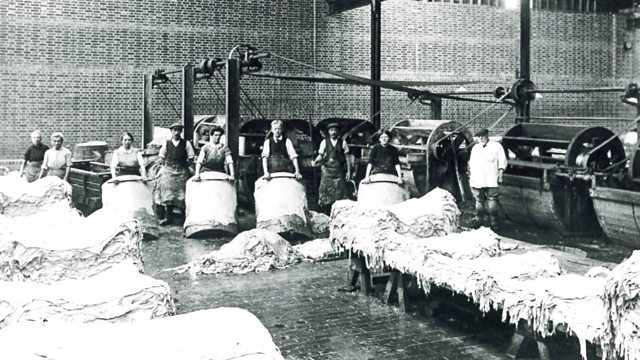Abingdon, Oxfordshire: Pavlova Leather Factory
From animal skins to leather goods for the front lines
The Pavlova leather factory in Abingdon expanded dramatically to cope with demand created by the war. There were premises dotted all over Abingdon dealing with different areas of production but the biggest one was located near Spring Road.
Pavlova dealt with every area of manufacture, from processing the animal skins taken from the butchers, to producing finished leather goods. Leather was very important to the military and was used for belts, straps and harnesses for horses pulling guns and coaches full of equipment, as well as leather boots and helmets for pilots.
The process of making leather was back breaking work – and once the war was under way – often done by women as most of the able bodied men went to fight. They would have worked in large sheds bent over large wooden scraping boards and scraped the wool and fat from animal skins.
Throughout the war the factory expanded and more sheds were built to house production. It was a messy and smelly business and required lots of water. There were often disputes with the town as the fat and debris removed from the animal skins clogged up the drains.
Once the war was over there was no longer such a demand for leather goods and the factory soon shrank in size. At the same time as the Pavlova factory was declining William Morris' car business was growing. He used some of the sheds to store his cars and eventually, in the 1920s, the luxury car offshoot MG Cars, started their first factory there.
Location: Abingdon, Oxfordshire OX14 1GN
Image: Workers at the factory, courtesy of Abingdon County Hall Museum
Duration:
This clip is from
Featured in...
![]()
�鶹�� Oxford—World War One At Home
Places around Oxford that tell a story of World War One
More clips from World War One At Home
-
![]()
The loss of HMY Iolaire
Duration: 18:52
-
![]()
Scotland, Slamannan and the Argylls
Duration: 07:55
-
![]()
Scotland Museum of Edinburgh mourning dress
Duration: 06:17
-
![]()
Scotland Montrose 'GI Brides'
Duration: 06:41







